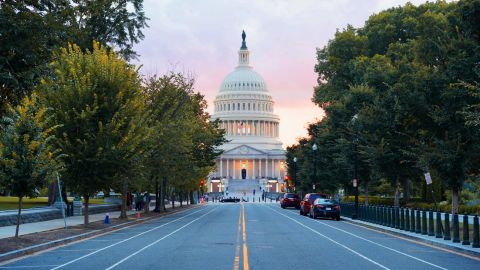White House releases 2020 budget request
This week, President Donald Trump released his fiscal year 2020 budget request. The proposal, titled “A Budget for a Better America: Promises Kept. Taxpayers First,” outlines $4.75 trillion to fund the federal government for FY 2020 which begins on Oct. 1. The proposed budget is in-line with the 2011 Budget Control Act. This law places requirements on Congress to address the nation’s debt limit and avoid default through budget sequestration.
The request calls for over $2.7 trillion in spending cuts to federal programs in FY 2020 and proposes deeper cuts in subsequent years. Included in the proposal are reductions to the budgets of the National Institutes of Health, National Science Foundation and Department of Energy’s Office of Science of 15 percent, 12 percent and 15 percent, respectively.
FY19 request (billion) |
FY19 enacted (billion) |
FY20 request (billion) |
|
National Institutes of Health |
34 |
39 (↑ $6 billion above request) |
33 (↓ $6 billion below FY19 enacted) |
National Science Foundation |
7.4 |
8.0 (↑ $600 million above request) |
7.1 (↓ $900 million below FY19 enacted) |
Department of Energy – Office of Science |
5.3 |
6.5 (↑ $1.2 billion above request) |
5.5 (↓ $1 billion below FY19 enacted) |
While the budget, in line with Trump’s campaign promises, provides increases for the Department of Defense and the Department of Homeland Security, as well as $5 billion for the construction of a border wall, the proposed cuts directly contradict Trump’s recent statements on federal investment priorities.
During the latest State of the Union, Trump announced a goal to eliminate the HIV epidemic in the United States in 10 years and support the creation of new therapies to treat childhood cancer. The President also voiced eagerness in working with the U.S. Congress to provide investments in “cutting edge industries of the future.” By reducing funding for the NIH, NSF and DOE’s Office of Science, Trump has signaled that while he and his advisors understand the importance of the government’s role in supporting the nation’s research and development enterprise, his administration is unwilling to provide the adequate support to accomplish the goals it had outlined.
Scientists can find some comfort in knowing that Congress has largely rejected spending cuts proposed by Trump throughout his presidency. Furthermore, Democratic leaders in both the U.S. House and Senate have released statements rejecting the reductions proposed by the President’s request, citing that the administration had “misguided priorities.”
In addition to funding the government in FY 2020, Congress must also address the looming spending caps which will impose an immediate budget reduction of 11 percent to defense spending and 9 percent to nondefense discretionary spending if a new budget deal is not reached. In 2018, Congress passed a bipartisan budget deal that raised these spending caps by $130 billion for FY18 and FY19. This spending cap relief allowed Congress to provide increased funding to science agencies for the past two years, giving the NIH a $4 billion increase in that time. Though there is some appetite in Congress to reach a new budget agreement, talks are still only in the preliminary stages.
The American Society for Biochemistry and Molecular Biology released a response to President Trump’s budget request, highlighting the “unconscionable decreases in federal spending” while Trump boasts his support for job creation, national security and economic growth. The full ASBMB statement can be viewed here.
Enjoy reading ASBMB Today?
Become a member to receive the print edition four times a year and the digital edition monthly.
Learn moreGet the latest from ASBMB Today
Enter your email address, and we’ll send you a weekly email with recent articles, interviews and more.
Latest in Policy
Policy highlights or most popular articles

Councilors advocate for science on Capitol Hill
ASBMB Councilors meet with their elected officials to advocate for basic scientific research funding and training the next generation of scientists.

Hope for a cure hangs on research
Amid drastic proposed cuts to biomedical research, rare disease families like Hailey Adkisson’s fight for survival and hope. Without funding, science can’t “catch up” to help the patients who need it most.

Supporting science through advocacy and community building
ASBMB calls on scientists to take action as funding cuts and policy shifts threaten the U.S. research enterprise, emphasizing the power of community advocacy and persistence in protecting the future of science.

Seven steps to advocating in your home state
Find out how to schedule, prepare for and conduct a productive district office meeting to communicate the importance of fundamental scientific research funding to your representatives.

ASBMB members call for funding and agency support amidst uncertainty
In 60 meetings on Capitol Hill, scientists urge legislators to reaffirm support for scientific innovation

Embrace your neurodivergence and flourish in college
This guide offers practical advice on setting yourself up for success — learn how to leverage campus resources, work with professors and embrace your strengths.
